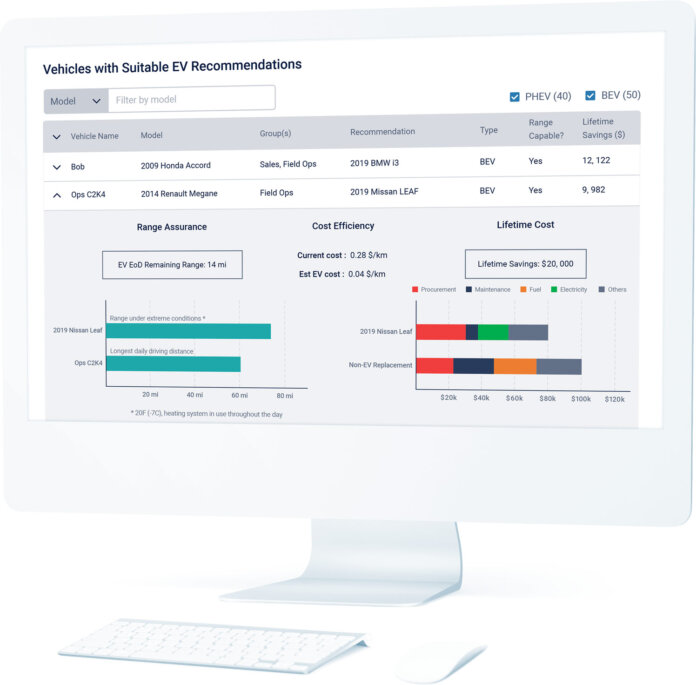Geotab, an IoT and connected transportation company, and Enterprise Fleet Management, a fleet management provider with more than 649,000 vehicles across North America, have announced results from one of Geotab’s largest fleet Electric Vehicle Suitability Assessments.
With the transition to electric vehicles (EV) under way across North America and fleets faced with the challenges of meeting new sustainability standards, Enterprise Fleet Management and Geotab analyzed vehicle data from portions of Enterprise’s fleet vehicles to identify the current electrification opportunity and better understand how the shift to EVs will affect fleets.
Utilizing Geotab’s Electric Vehicle Suitability Assessment (EVSA), the massive study included more than 91,000 of Enterprise Fleet Management’s leased vehicles. In addition to helping Enterprise Fleet Management better understand how the shift to EVs will affect its business today and beyond, the study also enables the fleet provider to better consult with its customers by using tangible, data-driven insights for their respective business clients.
According to the study, of the 91,252 vehicles analyzed, 13% (approximately 12,000) were good candidates to be economically replaced by range-capable EVs today. Near-term electrification of these estimated 12,000 vehicles could achieve a total potential savings of $33 million and 194,000 tons of tailpipe CO2 emissions over four years.
Up to 45% (approximately 42,000) of the analyzed vehicles could be electrified as EV pickups enter the market. Shifting to EV pickups would equal 1.3 million tons of tailpipe emission reductions across the entire fleet, over a four-year service life.
“With the transition to EVs underway across North America and fleets faced with the challenges of meeting new sustainability standards, Enterprise Fleet Management recognizes the importance of successfully delivering EV solutions to customers,” says Dain Giesie, assistant vice president at Enterprise Fleet Management. “We have already helped several organizations integrate these vehicles into their fleet.”
Electrifying almost half of Enterprise Fleet Management’s vehicles would result in a potential cost savings of $167 million or $4,056.20 per vehicle.
“Our goal with this study was to map out what we need to know and to help us understand what we need to provide our customers now and in the near future so we can continue to be the best fleet management provider possible,” continues Giesie. “It did that, highlighting our customers’ opportunities and needs so we can keep our strategic planning process on track and continue to be a fleet management leader for those we serve.”
Geotab’s EVSA tool offers data-driven adoption recommendations by analyzing a fleet’s unique driving profiles and patterns. By leveraging aggregated data from Geotab to show how vehicles were being used by Enterprise Fleet Management clients, the companies were able to produce a suitability assessment on a scale never attempted before.
“By combining Geotab’s analytics with Enterprise Fleet Management’s real-world data on a large scale, we’ve been able to provide a unique perspective on how the company can expect its fleet to evolve in the coming years,” comments Charlotte Argue, senior manager of fleet electrification for Geotab. “In addition, an assessment of this kind highlights the value of fleet-specific data, since it enables us to minimize assumptions and thus increase the accuracy of our analysis. More importantly, equipped with tangible data, Enterprise Fleet Management can make confident, strategic decisions when it comes to fleet electrification.”
The Geotab EVSA uses telematics data to understand a fleet’s specific needs and makes EV adoption recommendations, paired with a projection of financial savings and environmental benefits of transitioning to EVs. Backed by the largest dataset of real-world EV performance metrics, it can be used regularly to understand a fleet’s electrification potential as new models enter the market, and as fleet needs and macroeconomic factors change. The EVSA forms part of Geotab’s broader suite of solutions designed to help organizations achieve zero-emissions or their sustainability goals.





